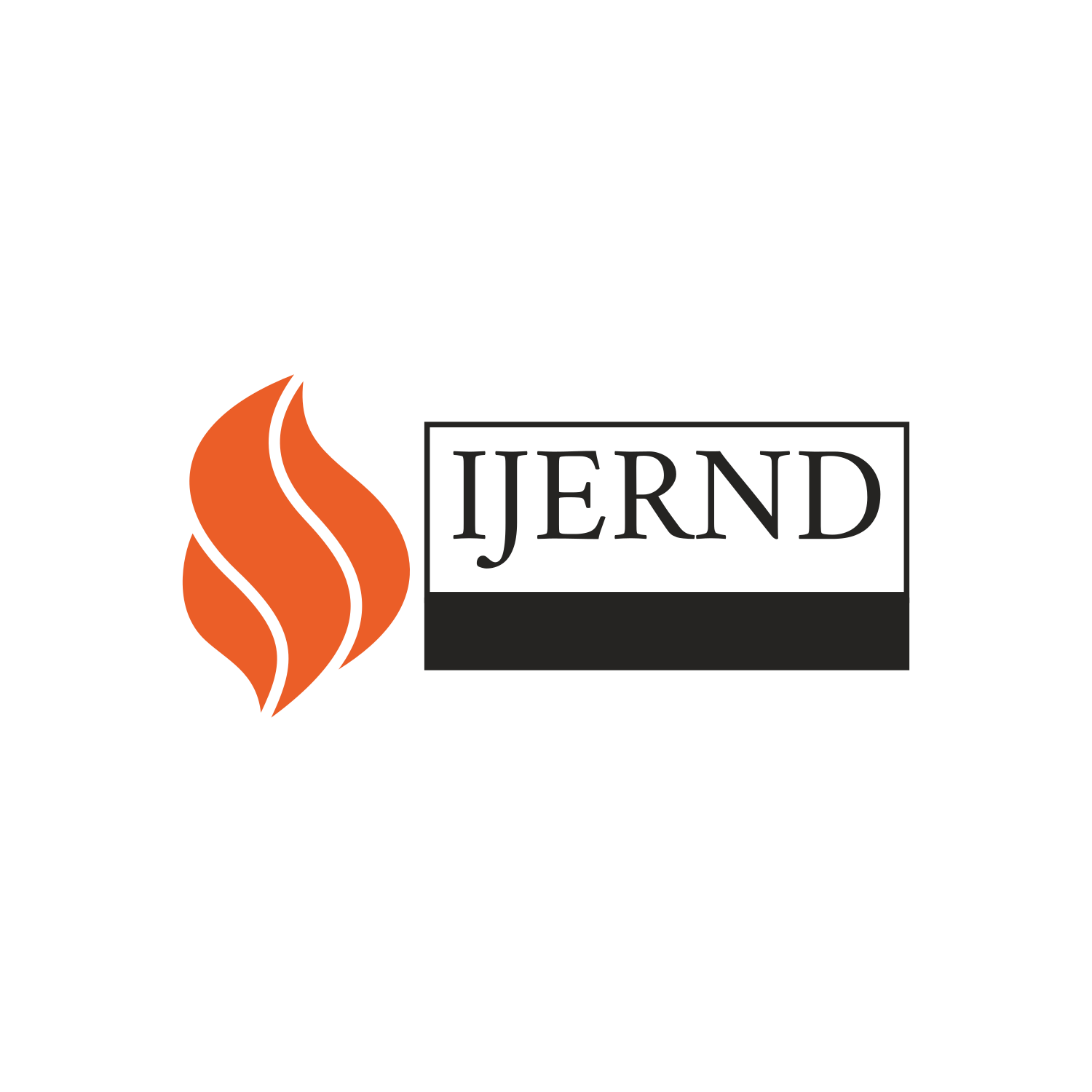
Archives - Page 3
-

Smart City App for Citizen Complaint Management
Vol. 2 No. 05 (2025)Abstract
The project titled "Smart City App for Citizen Complaint Management" aims to develop a comprehensive mobile application to streamline and enhance the process of citizen complaint resolution within urban environments. The project focuses on creating a user-friendly interface that enables citizens to easily report issues such as potholes, streetlight outages, and other civic concerns.
Key features of the app include a simple and intuitive complaint submission system, allowing users to provide detailed information about the nature of the problem. The application assigns a unique reference number to each complaint, facilitating efficient tracking and monitoring by municipal authorities.
The project also emphasizes the integration of a centralized dashboard for municipal officials, enabling them to prioritize and manage complaints effectively. The app incorporates automation to categorize and prioritize complaints based on urgency and severity, optimizing resource allocation for timely issue resolution.
Transparency is a key aspect of the Smart City app, with real-time updates and notifications keeping citizens informed about the status and progress of their submitted complaints. Users are encouraged to provide feedback on the resolution process, promoting continuous improvement in municipal services.
By addressing the challenges of citizen complaint management, the project contributes to the development of smarter and more responsive urban environments. The Smart City app aims to foster a collaborative relationship between citizens and municipal authorities, ultimately leading to a more efficient and engaged community.
Index Terms
Smart city, Citizen complaint management, Mobile application, Urban environments, Potholes, Streetlight outages, Civic concerns, User-friendly interface, Complaint submission system, Municipal authorities, Centralized dashboard, Automation, Issue resolution, Transparency, Real-time updates, Notifications, Feedback, Municipal services, Collaborative relationship, Community engagement.
-

Empowering Community Bonds through Resources and Sharing
Vol. 1 No. 03 (2024)Abstract
The project titled "Empowering Community Bonds through Resources and Sharing" seeks to explore and implement initiatives that foster a sense of unity and collaboration within a community. The project aims to identify and establish shared resources, such as community gardens, tool libraries, or communal spaces, to facilitate the exchange of tangible resources. Additionally, it delves into the exchange of ideas, experiences, and support systems, promoting a culture of inclusivity and understanding among community members.
Through this project will investigate the impact of resource-sharing initiatives on community development, self-sufficiency, and resilience. The implementation of practical solutions, such as creating platforms for knowledge exchange and collaborative projects, will be a key focus. The project aims to contribute to the enhancement of community bonds by emphasizing the importance of collective well-being and interdependence.
By conducting research, designing and implementing community-based interventions, and evaluating the outcomes to demonstrate the positive effects of empowering community bonds through resources and sharing. The findings and recommendations from this project can serve as a valuable guide for future community development initiatives, promoting a more cohesive and resilient society.
Index terms
Community empowerment, Resource-sharing initiatives, Community development, Self-sufficiency, Resilience, Knowledge exchange platforms, Collaborative projects, Collective well-being, Interdependence, Community-based interventions, Unity and collaboration, Inclusivity, Community bonds, Shared resources, Community gardens, Tool libraries, Communal spaces, Impact evaluation, Positive effects, Future community development initiatives.
-

Air Quality Prediction Using Machine Learning Algorithms
Vol. 2 No. 08 (2025)ABSTRACT
The project titled "Air Quality Prediction Using Machine Learning Algorithms" endeavors to address the critical issue of air pollution through the application of advanced computational techniques. The project aims to develop a robust predictive model that can forecast air quality levels based on historical data, meteorological parameters, and relevant environmental features. Leveraging machine learning algorithms such as regression, decision trees, or neural networks, the project seeks to analyze complex relationships within the data and enhance the accuracy of air quality predictions.
The methodology involves the collection and preprocessing of extensive datasets encompassing pollutant concentrations, weather conditions, and geographical information. The selected machine learning algorithms will be trained on this data to recognize patterns and correlations, enabling the model to make accurate predictions. The project also explores the integration of real-time data streams, satellite imagery, and sensor networks to improve the responsiveness of the predictive model.
-

Smart Hospital Management with REACT: A User-Centric Approach
Vol. 2 No. 01 (2025)Abstract
The project titled "Hospital Management using REACT" aims to develop a comprehensive and user-friendly web application for efficient management of hospital resources and operations. Leveraging the power of REACT technology, the project focuses on creating a responsive and interactive interface that facilitates seamless navigation and accessibility across various devices.
The system will incorporate modules to handle key aspects of hospital management, including patient information, staff scheduling, and medical equipment inventory. Through the use of REACT components, the application will enable the creation of dynamic dashboards, real-time data visualization, and personalized interfaces tailored to different user roles within the hospital hierarchy.
Key features of the proposed system include responsive design, ensuring optimal user experience on desktops, tablets, and smartphones. The state-of-the-art REACT state management will be utilized to handle complex data interactions, ensuring the accuracy and real-time updating of information.
The project aims to address the challenges faced by hospital administrators in managing resources effectively, providing them with a powerful tool to streamline workflows and enhance decision-making. By adopting REACT in the development process, the project seeks to deliver a scalable, modular, and maintainable solution for hospital management that aligns with modern web development practices.
Through this projectaims to showcase proficiency in web development, UI/UX design, and the utilization of cutting-edge technologies like REACT to solve real-world challenges in the healthcare sector. The resulting web application is anticipated to contribute to the improvement of hospital administration processes, ultimately benefiting both healthcare providers and patients.
Index Terms
Hospital Management, REACT Technology, Web Application, User Interface Design, Responsive Design, User Experience, Patient Information Management, Staff Scheduling, Medical Equipment Inventory, Dashboard, Data Visualization, User Roles, State Management, Workflow Streamlining, Decision-making Enhancement, Scalability, Modularity, Web Development, UI/UX Design, Healthcare Sector.
-

HYBRID MACHINE LEARNING MODEL FOR EFFICIENT BOTNET ATTACK DETECTION IN IOT ENVIRONMENT
Vol. 1 No. 1 (2024)Abstract
The advent of machine learning has significantly transformed various sectors, introducing advanced predictive capabilities and intelligent systems. This paper presents a hybrid machine learning model combining Federated Learning (FL) and Explainable Artificial Intelligence (XAI). Federated Learning enhances privacy and security by allowing data to be trained across multiple decentralized devices without centralizing the data, while XAI provides interpretability and transparency to the model's decisions. Our proposed model leverages these technologies to ensure robust, secure, and understandable machine learning outcomes. The effectiveness of this hybrid model is demonstrated through extensive experiments, showing improved accuracy and interpretability without compromising user data privacy.Furthermore, the model addresses the growing concerns around data breaches and the lack of transparency in AI decision-making processes. By implementing Federated Learning, data remains localized on user devices, reducing the risk of exposure during data transfer. The integration of XAI techniques ensures that users and stakeholders can comprehend the rationale behind model predictions, fostering trust and compliance with regulatory standards. This combination is particularly beneficial for applications in sensitive areas such as healthcare, finance, and autonomous systems, where both data privacy and model transparency are paramount.
Index Terms
Hybrid Machine Learning, Federated Learning, Explainable AI (XAI), Data Privacy, Model Interpretability, Decentralized Training, Machine Learning Security, Transparent AI, Data Security, User Trust, AI in Healthcare, AI in Finance, AI Governance, SHAP, LIME, Model Transparency.
-

Real-Time Facial Analytics: A Deep Learning Approach to Gender, Age, and Emotion Recognition
Vol. 2 No. 06 (2025)Abstract
This project aims to develop a sophisticated real-time face recognition system capable of extracting comprehensive insights such as gender, age, and emotion, while incorporating statistical analysis. The project leverages advanced deep learning architectures, including Convolutional Neural Networks (CNN), Support Vector Machines (SVM), and Long Short-Term Memory (LSTM) networks, to achieve a multi-dimensional understanding of facial attributes.
The Convolutional Neural Network is employed for its effectiveness in spatial feature extraction, enhancing the accuracy of gender and age estimation. Support Vector Machines contribute to refining classification boundaries, augmenting the overall precision of the recognition system. The inclusion of Long Short-Term Memory networks enables the model to capture temporal dependencies, facilitating nuanced emotion analysis in real-time scenarios.
Additionally, the project incorporates statistical methods to provide valuable insights into the distribution and variability of demographic attributes and emotional states within the dataset. The holistic integration of these diverse approaches ensures a robust and efficient real-time face recognition system capable of delivering accurate and nuanced results across multiple dimensions. This project not only contributes to the advancement of facial recognition technology but also offers a valuable learning experience in the realm of deep learning and computer vision.
Keywords
Real-time face recognition, Gender estimation, Age estimation, Emotion analysis, Statistical analysis, Deep learning architectures, Convolutional Neural Networks (CNN), Support Vector Machines (SVM), Long Short-Term Memory (LSTM) networks, Spatial feature extraction, Temporal dependencies, Demographic attributes, Emotional states, Dataset analysis, Robust recognition system, Computer vision, Deep learning, Facial attributes, multi-dimensional understanding, Nuanced results.
-

Satellite Image Classification using Inverse Reinforcement Learning and Convolutional Neural Networks
Vol. 1 No. 05 (2024)Abstract
Satellite image classification plays a pivotal role in various fields such as agriculture, urban planning, and environmental monitoring. This project proposes a novel approach to satellite image classification by integrating Inverse Reinforcement Learning (IRL) with Convolutional Neural Networks (CNN). The methodology involves training the model to understand complex spatial patterns and features inherent in satellite imagery through the extraction of relevant features using CNNs.
In the proposed framework, the model learns from expert demonstrations, mimicking the decision-making process of human experts in order to infer the underlying reward structure guiding their actions. This application of IRL allows the model to generalize and make informed predictions on unseen satellite data, contributing to enhanced classification accuracy.
The project aims to compare the results obtained from the IRL-based CNN approach with the accuracy achieved by traditional satellite image classification algorithms. Commonly used algorithms such as Support Vector Machines (SVM), Random Forests, and conventional CNNs trained with supervised learning will be considered for comparison. The evaluation will be based on metrics such as precision, recall, and F1 score, providing a comprehensive analysis of the proposed methodology's effectiveness.
The findings from this project are expected to shed light on the potential advantages and improvements offered by integrating inverse reinforcement learning techniques with CNNs in the context of satellite image classification. This research contributes to the growing field of remote sensing and machine learning applications, offering valuable insights for future developments in satellite image analysis.
Index Terms
Satellite image classification, Inverse Reinforcement Learning (IRL), Convolutional Neural Networks (CNN), Spatial patterns, Feature extraction, Expert demonstrations, Decision-making process, Reward structure, Generalization, Prediction, Classification accuracy, Support Vector Machines (SVM), Random Forests, Supervised learning, Evaluation metrics, Precision, Recall, F1 score, Remote sensing, Machine learning applications.
-

Shaping the Ultra-Connected Future: The Road to 6G
Vol. 2 No. 09 (2025)Talk of “6G” is no longer an engineering thought experiment: it’s becoming a social and economic conversation. Vendors and standards bodies describe 6G as the platform that will move us from connected devices to connected intelligence and immersive experiences; governments are already funding research and patent drives; and citizens are thinking about towers, costs and health implications. This article surveys current views on 6G from industry white papers, policy bodies and early public reactions. It explains the potential benefits (new services, resilience, socio-economic uplift), explores the main cost levers (spectrum, densification, energy), and outlines social and governance challenges (acceptance, equity, environmental impact). The aim is to give a balanced, readable synthesis of what people think, what’s at stake, and how societies might prepare for the ultra-connected infrastructures 6G promises.
-

Organ Donation Coordination Platform
Vol. 2 No. 03 (2025)Abstract
The project titled "Organ Donation Coordination Platform" aims to address the challenges associated with organ donation and transplantation processes by developing a comprehensive and efficient digital platform. The project focuses on creating a user-friendly interface that facilitates seamless communication and coordination among healthcare professionals, potential donors, and transplant recipients.
The key objectives include the development of a centralized database to store donor and recipient information securely, implementation of advanced algorithms for quick and accurate compatibility matching, and the incorporation of technologies to streamline logistics and reduce delays in organ allocation. The platform will prioritize confidentiality and transparency, ensuring the secure exchange of medical information while adhering to ethical standards.
Through the utilization of emerging technologies and innovative solutions, the project aims to enhance the overall efficiency of the organ donation process. This includes features for initial donor evaluation, real-time updates on organ availability, and post-transplant monitoring. The platform ultimately seeks to contribute to the advancement of organ donation and transplantation, fostering collaboration and accessibility within the healthcare ecosystem.
Index Terms
Organ Donation, Transplantation Processes, Digital Platform, Healthcare Professionals, Coordination, User-Friendly Interface, Centralized Database, Compatibility Matching, Logistics Streamlining, Organ Allocation, Confidentiality, Transparency, Medical, Information Exchange, Emerging Technologies, Innovative Solutions, Donor Evaluation, Real-Time Updates, Post-Transplant Monitoring, Collaboration, Accessibility, Healthcare Ecosystem.
-

ParkCam – Smart Vision-Based Parking Management
Vol. 2 No. 05 (2025)Abstract
The "Smart Parking System using Computer Vision" project aims to revolutionize traditional parking management by incorporating advanced computer vision technology. This project focuses on the development of a system that utilizes real-time video feeds from cameras installed in parking areas. The project employs sophisticated image processing algorithms to detect and track vehicles, accurately identifying available parking spaces.
Through the integration of computer vision, the system distinguishes between occupied and vacant parking spots, providing users with instant updates on parking availability. The project also incorporates machine learning algorithms to enhance accuracy and adaptability, allowing the system to learn from patterns and optimize its performance in different parking scenarios.
The user interface, accessible through a mobile application or web platform, provides real-time information on parking availability and guides users to the nearest vacant spot. This project not only streamlines the parking experience for users but also contributes to efficient traffic flow and reduced congestion in parking areas. The "Smart Parking System using Computer Vision" project showcases the potential of cutting-edge technology in addressing urban mobility challenges and enhancing the overall parking management landscape.
Index terms
Smart Parking System, Computer Vision, Real-time Video Feeds, Image Processing Algorithms, Vehicle Detection, Parking Space Tracking, Occupied and Vacant Parking Spots, Machine Learning Algorithms, User Interface, Mobile Application, Web Platform, Parking Availability, Traffic Flow, Congestion Reduction, Urban Mobility, Parking Management, Technology Integration, Efficiency Optimization.
-

Advanced Computer Vision Model for Real-Time Traffic Sign Classification in Autonomous Vehicles
Vol. 1 No. 04 (2024)This project titled "Advanced Computer Vision Model for Aiding Automobiles in Traffic Sign Classification" addresses the imperative need for enhancing road safety and driving efficiency through the application of cutting-edge technologies. The project focuses on developing a sophisticated computer vision model equipped with advanced algorithms and deep learning techniques. This model aims to accurately identify and classify various traffic signs encountered by vehicles in real-time.
The proposed solution leverages state-of-the-art technologies, including convolutional neural networks (CNNs) and advanced image recognition techniques, to enable swift and accurate analysis of visual data captured by on-board cameras. The system exhibits adaptability to diverse environmental conditions and lighting scenarios, ensuring robust performance under varying circumstances.
The primary objective of the project is to contribute to road safety by providing an intelligent system capable of recognizing a wide range of traffic signs, including regulatory, warning, and information signs. Through continuous learning and refinement, the computer vision model evolves to optimize its classification accuracy, contributing to a safer and more efficient driving experience.
This project not only serves as a practical application of computer vision principles but also aligns with the broader goals of advancing technology for societal benefit. The outcomes of this research aim to pave the way for the integration of intelligent systems into automobiles, thereby making significant strides towards creating a safer and smarter transportation ecosystem.
-

Empowering Architecture through Human-AI Co-Creation
Vol. 2 No. 08 (2025)Abstract
This project explores the innovative realm of "User-Driven Generative AI Architectural Design." In this endeavor, the focus is on developing an interactive and user-centric architectural design system powered by generative artificial intelligence (AI). The project aims to empower users with the ability to actively shape and influence the architectural design process through intuitive interfaces and input mechanisms.
The proposed system leverages cutting-edge machine learning algorithms to understand user preferences, constraints, and creative inputs. Through iterative feedback loops, the generative AI adapts and refines its output, ensuring a personalized and evolving design experience for each user. The goal is to establish a symbiotic relationship between human creativity and AI capabilities, fostering a collaborative environment where users actively contribute to the generation and refinement of architectural designs.
Key aspects of the project include the development of an intuitive user interface, the integration of advanced generative AI algorithms, and the implementation of a learning mechanism to enhance the system's responsiveness to user input. The outcome of this project holds the potential to revolutionize architectural design processes, offering a dynamic and user-driven approach to generate innovative and personalized architectural solutions.
Index terms
User-Driven Design, Generative AI, Architectural Design, Interactive Interfaces, Machine Learning Algorithms, User Preferences, Creative Inputs, Feedback Loops, Personalization, Collaborative Design, User Interface Development, Advanced AI Algorithms, Learning Mechanisms, Responsive Systems, Innovative Solutions, Revolutionizing Design Processes.
-

Advanced Threat Detection: Enhancing Weapon Identification and Facial Recognition with YOLOv8
Vol. 2 No. 02 (2025)Abstract:
The provided implementation code integrates several computer vision and machine learning techniques to detect and analyze the presence of persons and weapons in an image, utilizing pose estimation to further assess the relationship between detected persons and objects. It employs convolutional neural networks (CNNs), specifically a custom model for person detection and YOLO (You Only Look Once) for weapon detection. The pose estimation is performed using the Media Pipe library, which helps in identifying human poses by locating key points on the person's figure depicted in the image.The process initiates by loading the necessary models and preparing the image for detection tasks. Persons in the image are identified using a custom CNN model that processes images pre-processed to highlight facial features, while weapon detection is handled by YOLO, which scans for items classified as weapons. Following the detection, the application determines the spatial relationship between detected weapons and persons by analyzing key points from the pose estimation to see if a person is holding a weapon.
Keywords- computer vision, machine learning, pose estimation, object detection, CNN, YOLO, MediaPipe, facial recognition, weapon detection, image processing, security applications, real-time analysis, convolutional neural networks, keypoints detection.
-
AI Diet Planner Using Neural Network with Knapsack Optimizer
Vol. 3 No. 02 (2026)Dietary management is a fundamental component of preventive healthcare, yet individuals often struggle to formulate nutritionally balanced meal plans that align with personal health objectives, physiological constraints, and budgetary limitations. This paper presents an intelligent diet planning system that integrates a feedforward neural network with a dynamic programming-based 0/1 Knapsack optimization algorithm to generate personalized daily meal schedules. The neural network is trained on a curated health and nutrition dataset to predict optimal macronutrient ratios—proteins, carbohydrates, fats, vitamins, and minerals—based on user-specific inputs such as age, body mass index, health goals, and known food allergies. Once target nutritional profiles are established, the Knapsack optimizer selects the most nutritionally dense food items from a structured food database while respecting caloric budgets and cost constraints. The system generates structured meal plans comprising breakfast, lunch, dinner, and snack components. A continuous feedback loop enables the system to adapt predictions based on user responses, improving personalization accuracy over successive days. Experimental evaluation demonstrates that the proposed hybrid model achieves a mean absolute error of 3.8% in nutrient prediction and outperforms conventional static diet applications in user satisfaction and adherence metrics. The system offers a practical and scalable AI-powered alternative to manual dietary consultation.
-

Air Pollution Monitoring Using Machine Learning for Environmental Sustainability
Vol. 1 No. 02 (2024)Abstract
Air pollution is a critical environmental issue with significant implications for public health and the well-being of ecosystems. This project focuses on developing an innovative solution for air pollution monitoring utilizing machine learning (ML) techniques. The primary objective is to design a system that can accurately predict, analyze, and monitor air quality in real-time, providing valuable insights for effective pollution control and management.
The proposed system incorporates a network of sensors strategically placed in various locations to capture diverse air quality parameters such as particulate matter, nitrogen dioxide, sulfur dioxide, and more. The collected data is then processed through ML algorithms to identify patterns, correlations, and trends, enabling the system to make accurate predictions about air quality levels.
The project aims to address the limitations of traditional monitoring systems by
leveraging the adaptability and self-learning capabilities of ML models. By continuously updating and refining the models based on incoming data, the system becomes more adept at providing precise and timely information on air quality fluctuations.
This endeavor not only contributes to a deeper understanding of local air pollution dynamics but also empowers decision-makers with actionable insights for implementing targeted interventions. The integration of ML in air pollution monitoring represents a significant step towards creating sustainable and data-driven strategies for mitigating the adverse effects of pollution on human health and the environment.
Index terms
Air pollution, Machine Learning, Environmental Monitoring, Sustainability, Predictive Modeling, Sensor Network, Data Analysis.
-

OCR-Aided NLP for Automated Document Summarization
Vol. 2 No. 07 (2025)Abstract
The project titled "Automated Text Summarization from Scanned Documents" aims to develop a system that streamlines the process of extracting key information from scanned documents and generating concise textual summaries. The primary focus is on leveraging Optical Character Recognition (OCR) technology to convert scanned images into machine-readable text, followed by the application of Natural Language Processing (NLP) techniques for effective summarization.
The project involves the design and implementation of an intelligent algorithm that identifies important sentences, extracts key phrases, and summarizes the main ideas present in the scanned documents. Advanced NLP models and neural networks will be explored to enhance the accuracy and efficiency of the summarization process. The system's objective is to provide a time-efficient and accurate means of distilling relevant content from large volumes of scanned documents, thereby facilitating improved accessibility and aiding in efficient document management.
The proposed solution has significant potential applications in various domains such as information retrieval, document categorization, and knowledge management. The successful implementation of this project will contribute to the advancement of automated summarization techniques, offering a valuable tool for individuals and organizations dealing with vast amounts of scanned textual data.
Index Terms
Automated Text Summarization, Scanned Documents, Optical Character Recognition (OCR), Natural Language Processing (NLP), Key Information Extraction, Machine-Readable Text, Intelligent Algorithms, Sentence Identification, Key Phrase Extraction, Neural Networks, NLP Models, Document Summarization, Information Retrieval, Document Categorization, Knowledge Management, Accessibility, Document Management, Automated Summarization Techniques.
-

Sign Language Recognition System integrated with a mobile application
Vol. 1 No. 05 (2024)Abstract
This project aims to develop an innovative Sign Language Recognition System integrated with a mobile application, utilizing state-of-the-art machine learning techniques. The project addresses the communication challenges faced by individuals with hearing impairments by providing a real-time, efficient, and user-friendly solution for sign language interpretation.
The proposed system leverages a comprehensive dataset for training a machine learning model, enabling it to accurately recognize a diverse range of sign language gestures. The mobile application acts as a seamless interface, allowing users to communicate through sign language effortlessly. The system's integration with a mobile platform enhances accessibility, enabling users to engage in conversations, access information, and participate in various daily activities.
Key features of the project include real-time gesture recognition, continuous learning and updating of the machine learning model for improved accuracy, and a user-friendly interface for both sign language users and those interacting with them. The successful implementation of this Sign Language Recognition System is expected to contribute significantly to fostering inclusivity and accessibility for individuals with hearing impairments.
Index Terms
Sign language recognition, Machine learning techniques, Mobile applications, Communication challenges, Hearing impairments, Real-time gesture recognition, Dataset, Accessibility, Inclusivity, Continuous learning, User-friendly interface, Integration, Mobile platform, Daily activities, Improved accuracy.
-

The Silent Shift: How Low-Code is Reshaping Work, Security, and the Software Mindset
Vol. 2 No. 10 (2025)Low-code and no-code (LC/NC) platforms promise to transform software development by enabling rapid application creation without traditional programming expertise. This article explores the dual themes of security and scalability in LC/NC platforms through a storytelling lens — tracing the excitement of innovation, the anxieties of security professionals, and the mixed emotions of developers and enterprises as they weigh convenience against control. The article examines challenges in adoption, long-term learning curves, the risk of losing traditional craftsmanship in coding, and the looming question of employment shifts. Finally, it presents public perceptions and industry reflections on whether LC/NC platforms represent empowerment or an over-simplification that may come at hidden costs.
-

AI-Powered Image Recognition for Early Detection of Bacterial Blight and Black Rot in Mustard Plants
Vol. 2 No. 04 (2025)Abstract
This project focuses on the development and implementation of an advanced image recognition system for the timely and accurate diagnosis of bacterial blight and black rot in mustard plants. Agricultural diseases such as bacterial blight and black rot can significantly impact crop yield and quality, necessitating swift and precise identification for effective management. Traditional methods of disease diagnosis are often time-consuming and rely heavily on manual inspection, prompting the need for automated and efficient solutions.
The proposed system leverages state-of-the-art image processing techniques and deep learning algorithms to analyze high-resolution images of mustard plants. Through extensive training on diverse datasets encompassing various stages of infection, the model learns to discern subtle visual cues indicative of bacterial blight or black rot. Features such as leaf discoloration, lesion patterns, and overall plant health are systematically examined, contributing to the model's diagnostic accuracy.
The project aims to provide a user-friendly interface for agricultural professionals, enabling them to capture and upload images for automated analysis. The system's ability to swiftly differentiate between healthy and infected mustard plants facilitates early disease detection, allowing farmers to implement timely intervention and management strategies.
The successful implementation of this advanced image recognition system holds the potential to revolutionize the field of crop disease diagnostics, offering a valuable tool for mustard plant health monitoring and contributing to sustainable agriculture practices. The project aligns with the intersection of technology and agriculture, showcasing the significance of leveraging cutting-edge solutions to address real-world challenges in the agricultural sector.
Index Terms
Image recognition, Bacterial blight, Black rot, Mustard plants, Crop diseases, Agricultural diagnostics, Deep learning algorithms, Automated analysis, Disease detection, Intervention strategies, Sustainable agriculture, Plant health monitoring, Agricultural technology, User interface, Model training, Leaf discoloration, Lesion patterns, Agricultural professionals, Timely diagnosis, Precision agriculture
-

Blockchain Based Pharmaceutical Supply Chain Management System
Vol. 1 No. 03 (2024)Abstract—Thisinitiativewilluseblockchaintechnologyto addressissues and inefficiencies in the pharmaceutical supply chain. The traditional pharmaceutical supply chain is vulnerable to problems such as counterfeiting, data inconsistencies, and a lack of transparency. The suggested solution makes use of a decentralized and transparent blockchain technology to improve the overall traceability, security, and efficiency of the supply chain.
The solution uses smart contracts to automate and enforce presetbusinessrules,loweringtheriskofmistakesandfraud. Each transaction,from medicine manufacturetodistribution and retail, issecurelydocumented inanimmutableledger to provide a tamper-proof and genuine record. This degree of openness gives stakeholders, including as producers, distributors, and pharmacies, real-time information on the status and placement of pharmaceuticals.
Keywords—Counterfeiting, Data Inconsistencies,Lack of transperency,Decentralized,Traceability,Security,Efficieny
,SmartContracts,Automation,Fraudprevention,Immutable ledger,Tamper-proof.
-

AI-Powered Suicide Prevention Through Behavioral Analysis
Vol. 2 No. 05 (2025)Abstract
This project aims to address the critical issue of suicide prevention by leveraging machine learning techniques for early detection of potential suicidal tendencies. Suicide is a global public health concern, and timely identification of individuals at risk can significantly contribute to intervention and support.
The project focuses on the utilization of diverse data sources, such as social media posts, online behavior, and multimedia content, to develop an intelligent algorithm capable of recognizing patterns indicative of suicidal thoughts or intentions. Natural language processing and sentiment analysis techniques are employed to scrutinize textual content for linguistic cues associated with distress. Furthermore, image and video analysis techniques, including facial expression recognition and body language analysis, contribute to a comprehensive approach in identifying visual indicators of self-harm or suicidal ideation.
The research involves the development and training of machine learning models on diverse datasets to ensure robust and accurate detection capabilities. The project emphasizes the ethical considerations surrounding privacy and responsible use of technology, aiming to strike a balance between aiding mental health professionals and respecting individual privacy.
The successful implementation of this project could lead to the creation of a valuable tool for mental health practitioners and support systems, enabling them to intervene proactively and provide timely assistance to individuals at risk of suicide.
Index terms
Suicide prevention, Machine learning techniques, Early detection, Suicidal tendencies, Global public health concern, Timely identification, Intervention and support, Diverse data sources, Social media posts, Online behavior, Multimedia content, Intelligent algorithm, Recognizing patterns, Suicidal thoughts or intentions, Natural language processing, Sentiment analysis, Linguistic cues, Distress detection, Image analysis techniques, Video analysis techniques, Facial expression recognition, Body language analysis, Visual indicators, Self-harm, Suicidal ideation, Machine learning models, Ethical considerations, Privacy concerns, Responsible technology use, Mental health professionals, Support systems, Proactive intervention, Timely assistance.
-

Mental Health Monitoring Web Application Using Machine Learning
Vol. 1 No. 04 (2024)The "Mental Health Monitoring Web Application" project aims to address the growing need for accessible and efficient tools to support mental well-being. In today's fast-paced world, individuals often face challenges in managing their mental health due to various stressors and lifestyle factors. This project proposes the development of a web-based application designed to empower users to monitor and enhance their mental well-being effectively.
The application will offer a user-friendly interface allowing users to log their mood, activities, and thoughts regularly. By analyzing this data over time, the application will help users identify patterns, triggers, and trends impacting their mental state. Additionally, the application will provide personalized recommendations, resources, and self-care techniques tailored to each user's needs and preferences.
Key features of the application may include goal setting, appointment scheduling, and connectivity with mental health professionals for guidance and support. Through the integration of evidence-based practices and intuitive design, the Mental Health Monitoring Web Application seeks to promote mental health awareness, resilience, and overall well-being among its users.
This project not only addresses the technological aspect of web application development but also delves into the critical domain of mental health, contributing to the advancement of tools and resources for mental health support in today's digital age.
-

Smart Face Recognition with Database-Integrated Identity Verification
Vol. 2 No. 02 (2025)Abstract:
The abstract describes an integrated system developed to enhance security and surveillance measures through simultaneous face recognition and object detection. Utilizing advanced machine learning algorithms, the system efficiently processes video streams to identify individuals and detect potential threats or items of interest within a monitored environment. Face recognition is achieved using sophisticated convolutional neural networks that have been trained on extensive datasets to ensure accurate and reliable identification. Concurrently, object detection is conducted via a YOLO (You Only Look Once) model, known for its real-time processing capabilities, enabling the identification of various objects, including weapons, within the same frame as the face detection.This dual capability is particularly advantageous for applications requiring comprehensive monitoring solutions, such as public safety or secure access control in sensitive areas. The system provides real-time analytics and visualizations by annotating video frames with labels and bounding boxes, indicating the presence and identity of both individuals and detected objects. Designed with scalability in mind, the framework can be customized or expanded to accommodate specific security requirements, offering a robust toolset for modern surveillance needs. This integrated approach not only enhances the effectiveness of surveillance systems but also significantly contributes to proactive security management and incident prevention.
Keywords-face recognition, object detection, video surveillance, security systems, machine learning, convolutional neural networks, YOLO, real-time processing, public safety, secure access control, TensorFlow, OpenCV, deep learning, video analytics, surveillance technology, threat detection, computer vision, data visualization, scalability, proactive security management.




